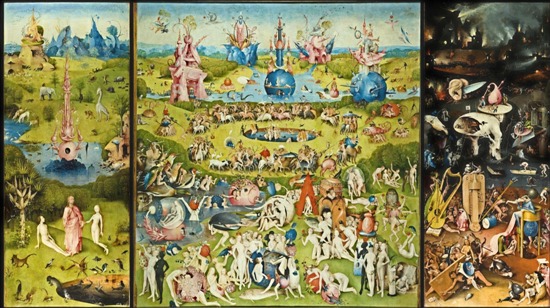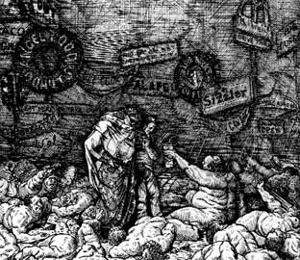The Biblical Concepts of Hell Part II


In general, the perception we have of hell is that of a place of eternal torment and pain, where fire and brimstone are constant occurrences, mimicking the scatological vision of Dante’s Inferno[4]. No doubt that the many different ideas about hell were attached to the general concept of the underworld; bringing much confusion, inflicting fear, pain and guilt to the living, and ultimately generating a state of control and power over individuals in search of a transcendental understanding.
 Ultimately, what we find through this polemic topic is the way the Bible teaches us about the domains of the dead, and what awaits a soul after its earthly journey. The Old Testament talks about only Sheol, the place of the departed souls. Sheol is found in the text of the Bible 65 times. It is translated as “the pit” 3 times, as “the grave” 31 times and as “hell” 31 times.
Ultimately, what we find through this polemic topic is the way the Bible teaches us about the domains of the dead, and what awaits a soul after its earthly journey. The Old Testament talks about only Sheol, the place of the departed souls. Sheol is found in the text of the Bible 65 times. It is translated as “the pit” 3 times, as “the grave” 31 times and as “hell” 31 times.
The other texts of the New Testament use the word Hades, a Greek word to denote the underworld designating it as the abode of the dead, but again as a transitional and temporary state of reality for the departed souls. The word Hades is used 11 times, being rendered as “hell” 10 times and “the grave” once.
“In hell, where he was in torment, he looked up and saw Abraham far away, with Lazarus by his side.”
Luke 16:23
To add to this concept of underworld, we have two more ideas or words that again contribute to the confusion about the destination of a soul after its passage through incarnations. These words are Tartarus[5], which is found once and the word Gehenna[6], which is used 12 times.
[1] See 1 Peter 4:6
[2] The Second Death refers to the “death” of the soul, not the death of the physical body.
[3] Old Testament/Hebrew Bible's underworld, a place of darkness to which all the dead go, both the righteous and the unrighteous, regardless of the moral choices made in life, a place of stillness and darkness cut off from God.
[4] Inferno (Italian for "Hell") is the first part of Dante Alighieri's 14th-century epic poem Divine Comedy.
[5] A Greek concept; It is a deep, gloomy place, a pit, or an abyss used as a dungeon of torment and suffering that resides beneath the underworld. In the Gorgias, Plato (c. 400 BC) wrote that souls were judged after death and those who received punishments were sent to Tartarus.
[6] Gehenna actually existed as a geographical place in ancient times; it was a place outside ancient Jerusalem where the bodies of criminals and non-Jews were burned.









